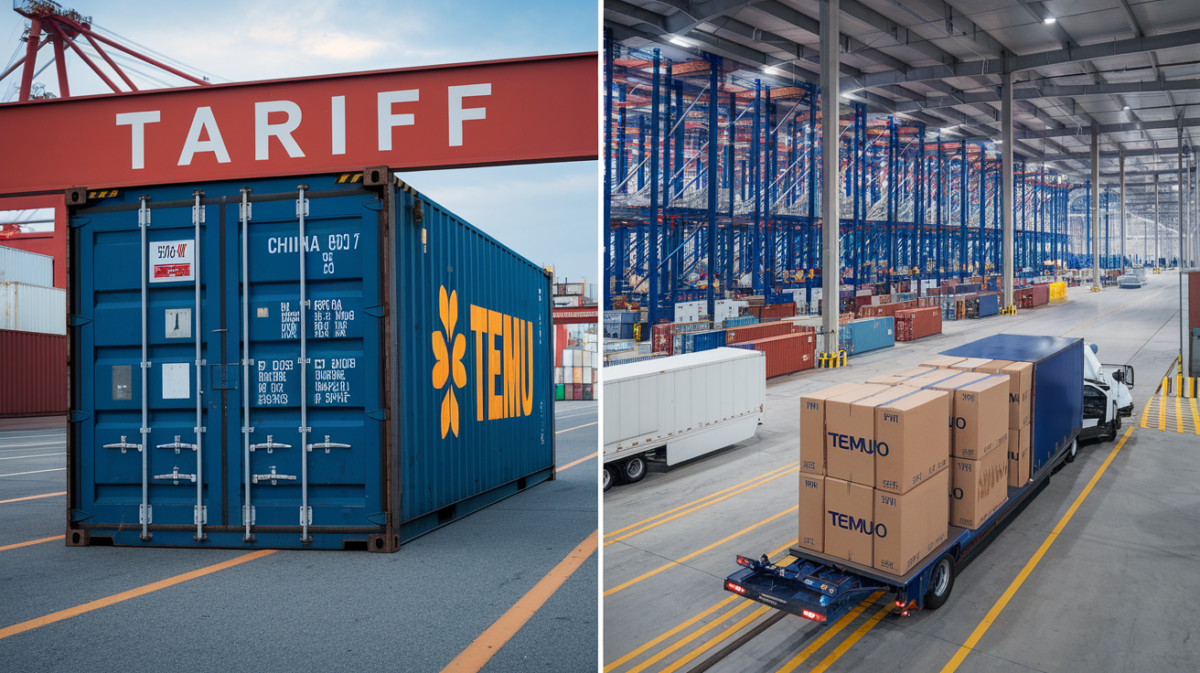Policy Shift Ends Loophole, Forces E-Commerce Giant to Adapt
In a significant move, Temu, the Chinese e-commerce platform owned by PDD Holdings, has halted shipments from China to the United States following a new executive order from former President Donald Trump. The order closes the “de minimis” tariff exemption, a policy that previously allowed foreign businesses to ship low-value packages to U.S. customers without paying tariffs. This change has sent shockwaves through the e-commerce industry, forcing companies like Temu to rethink their supply chains.
What Changed?
The de minimis exemption permitted shipments valued under $800 to enter the U.S. duty-free, enabling platforms like Temu and Shein to offer affordable goods to American consumers. With the exemption now revoked, U.S. customs will impose tariffs on these previously exempt packages, potentially raising costs for both businesses and shoppers.
Temu has swiftly adjusted its operations to comply with the new rules. The company has updated its website and app to display only items stocked in U.S. warehouses, shifting its focus to domestic fulfillment. This pivot aims to minimize disruptions and maintain its competitive pricing in the U.S. market.
Impact on Consumers and Businesses
The policy change is expected to have far-reaching consequences:
- Higher Prices: Consumers may face increased costs as tariffs are passed down to buyers.
- Delivery Delays: With more packages subject to customs checks, shipping times could lengthen.
- Supply Chain Shifts: Companies like Temu are now prioritizing U.S.-based inventory to avoid tariffs.
Critics of the policy argue that it could hurt small businesses and consumers who rely on affordable imports. Meanwhile, supporters claim it levels the playing field for domestic manufacturers.
Temu’s Response: A Strategic Pivot
To adapt, Temu has introduced new sections on its platform, such as “lightning deals” and “local warehouse,” highlighting items already stored in the U.S. This strategy aims to reassure customers of faster delivery and avoid tariff-related price hikes.
The company’s parent firm, PDD Holdings, has also felt the financial impact. Following the announcement, its stock price dropped significantly, reflecting investor concerns about the policy’s effect on Temu’s U.S. operations.
Broader Implications for E-Commerce
The end of the de minimis exemption marks a turning point in U.S. trade policy, with implications beyond Temu:
| Stakeholder | Potential Impact |
|---|---|
| Consumers | Higher prices, longer wait times for deliveries |
| E-Commerce Platforms | Need to restructure supply chains, focus on domestic inventory |
| Domestic Retailers | Possible boost as foreign competition faces higher costs |
Looking Ahead
As the new tariffs take effect, the e-commerce landscape is poised for further changes. Companies like Temu will need to innovate to stay competitive, while consumers may need to adjust their shopping habits. The long-term effects of this policy shift remain uncertain, but one thing is clear: the era of duty-free, low-cost imports from China is over—at least for now.
For Temu, the challenge will be balancing cost efficiency with compliance, ensuring it remains a viable option for U.S. shoppers. The coming months will reveal whether its strategic adjustments are enough to weather the storm.







